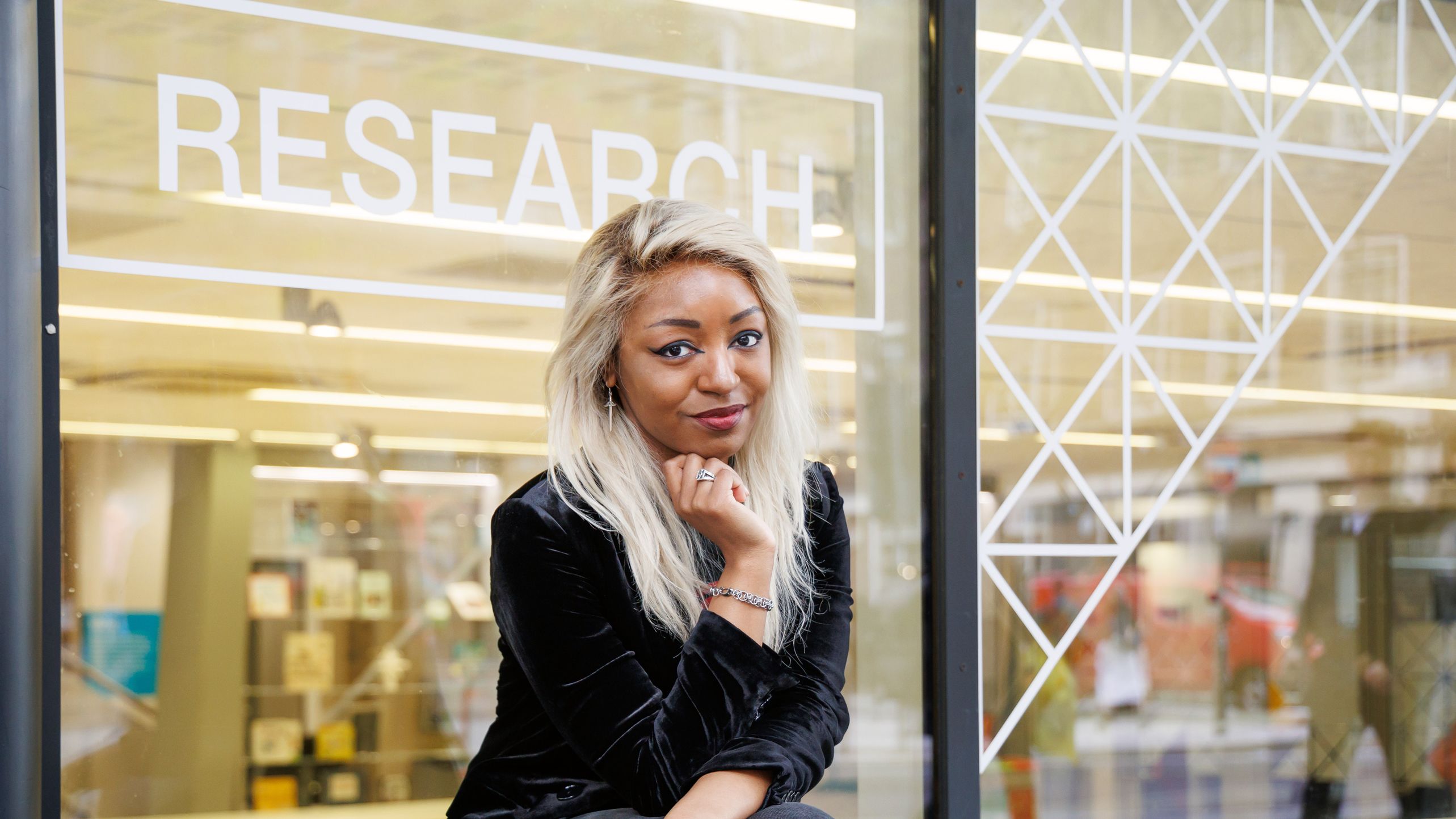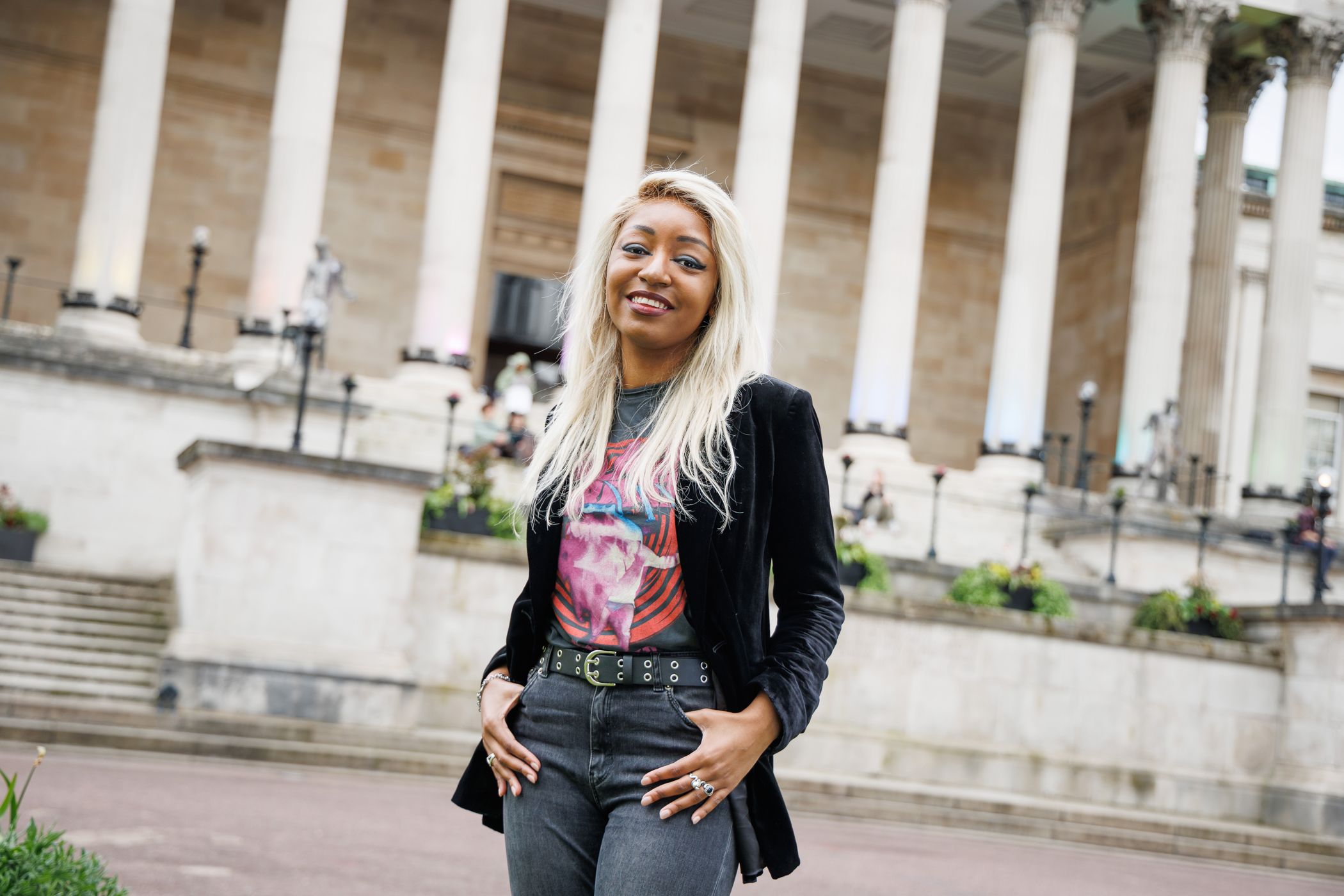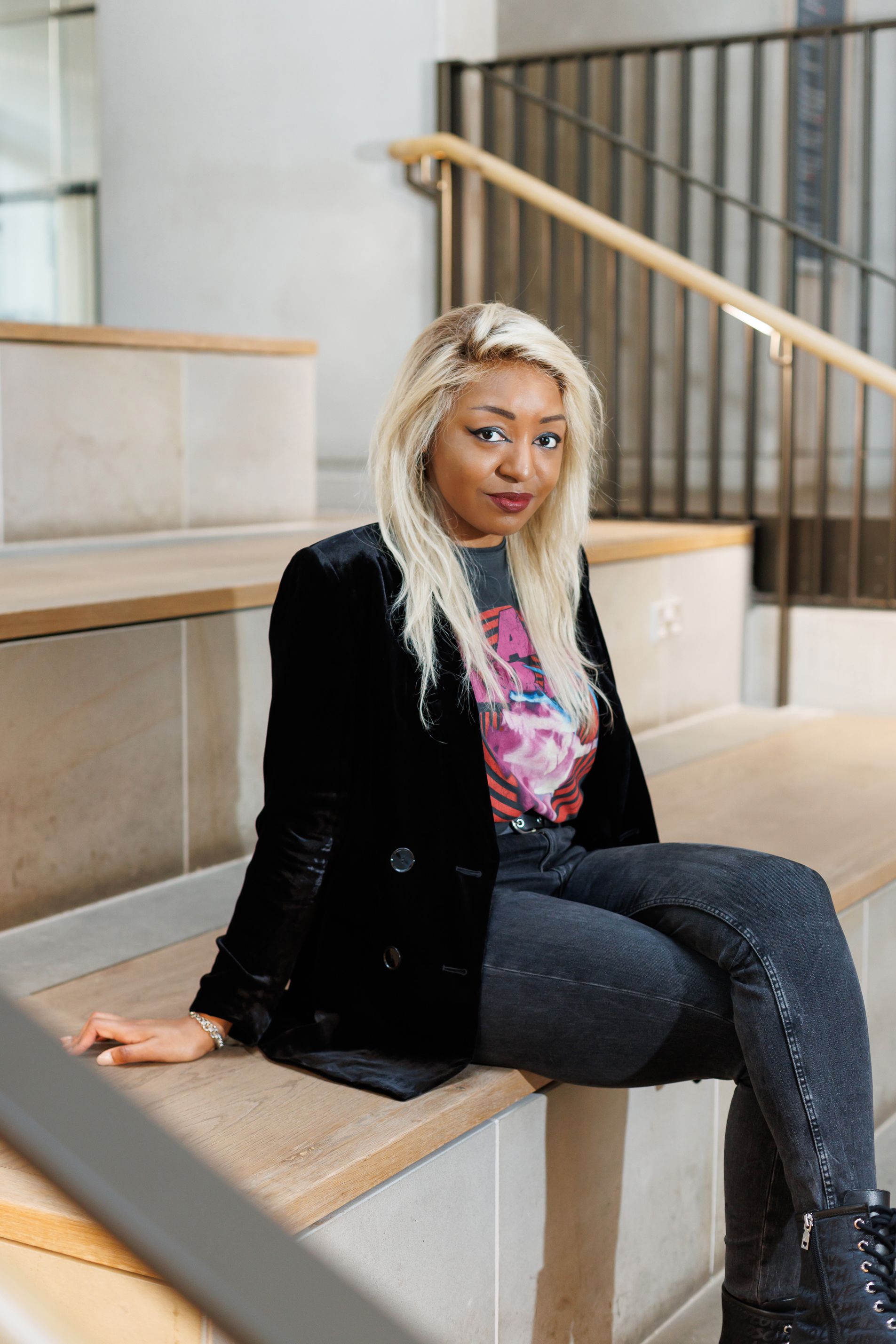Inspired By: Yasmin Benoit
Conversation starter
How Yasmin Benoit (MSc Crime Science 2018) is challenging the narrative about asexuality

I’m a model, an asexuality activist, and a Crime Science MSc graduate, which aren’t necessarily attributes that you’d naturally group together. But I think the common thread that connects these different things is that I want to do work that can make a difference in some way.
Studying Crime Science at UCL felt like a natural progression from studying Sociology, which I’d studied for my undergraduate degree at St Mary’s. Plus, I’d long been interested in the criminal applications of sociology – I was a bit of a true-crime nerd as a teenager. The course focused on practical ways of dealing with crime, exploring topics like counter terrorism, cyber-crime and crime mapping. We even studied Jeremy Bentham’s ‘panopticon’ concept. I was studying lots of new things, which was challenging, but I surprised myself with what I was able to do. I believe having a UCL degree has helped me to access important spaces and be taken seriously.
Being at a university in London also put me in closer proximity to modelling opportunities. I started modelling just after finishing at college, and from the beginning of my modelling career, I was conscious that Black models don’t have as much representation. I decided to use the platform I’d gained through modelling to amplify this and began writing essays for publications such as Afropunk. I still model now and I’m especially drawn to campaigns with a connection to my asexuality activism.

Someone who is asexual – or ace – feels little-to-no sexual attraction towards anyone. I knew I was asexual at a young age, and tried to learn more about it as a teenager in the early 2010s, but not many people were talking about it. Fast forward to 2017 – at which point I was modelling more, which meant I was spending more time on social media – and I realised that the landscape hadn’t changed much at all. Despite conversations having opened up about other LGBTQIA+ identities, there was still little discussion of asexuality or representation of asexuality in the media. I thought, “why not throw my perspective in the mix?”, and publicly came out on National Coming Out Day 2017.
People cared about this more than I expected. Suddenly, I was doing interviews, appearing in documentaries, and speaking at events. By the time I graduated from UCL, my activism work had really taken off. I’ve since worked with brands, produced research, met with politicians and spoken at conferences. I’ve come across many fellow UCL alumni through my work, even as far away from London as Serbia, and I’ve been back on campus to speak to students. Of course, I made sure to pay a visit to Jeremy Bentham.
As my activism work increased, my goal shifted from wanting to diversify the conversation around asexuality, to wanting to ensure the asexual community has the representation and protection it deserves. As with many other sexualities and gender identities, asexuality has long been considered unnatural – as something wrong with you that needs to be fixed. It’s often treated as a side effect of a medical condition, or as a negative choice a person makes. And it’s not covered by the UK Equality Act 2010.
I wanted to do something about this, so I approached the LGBT+ rights charity Stonewall. I dropped them a long email about the issues facing the asexual community and asked what work Stonewall was doing in this space – when they said that little was happening, I said “let’s change that”.
Image: John Moloney
Image: John Moloney

Image: John Moloney
Image: John Moloney
The Stonewall x Yasmin Benoit Ace project began in 2022. We realised that before we could begin campaigning for change, we needed people to understand more about asexuality and the issues we want to tackle. So the first phase of the project was to produce a report. The skills I learnt during my MSc really helped me to do this – while I wasn’t applying the panopticon theory, I was doing qualitative and quantitative research, producing a bibliography, and writing what felt like another dissertation.
In 2023, we published the Ace in the UK report. The report builds on the findings of the UK Government’s 2018 National LGBT+ Survey, which showed, among other issues, that asexual people have lower levels of life satisfaction; were more likely to need mental health support; and had experienced more negative reactions to their coming out. The goal of our report was to understand, through focus groups and interviews with asexual people, why they were having these experiences and to devise solutions.
We found that asexual people faced discrimination in many aspects of their lives and that the community needs better legal protections. A key finding was the poor experience many asexual people have in the workplace; half of ace people aren’t out at work, and many that are often experience intrusive questions or harassment. Wherever you work, you will likely have asexual colleagues, so I’d encourage everyone to read the report and our recommendations.
We also found that many ace people have poor experiences in healthcare settings, where their asexuality is often inappropriately labelled a mental health condition. Our report calls for the World Health Organization to end its classification of asexuality as a mental health condition, as it has previously done for homosexuality and transgender health. We’re also calling for asexual people to be provided with protections under the Equality Act, and for a ban on conversion therapy.
The current focus of the Stonewall x Yasmin Benoit Ace project is to get our report on the right people’s radars; we’re consulting with the NHS, speaking to the Government Equalities Office, and hope to work with the Royal Colleges. We’re getting this information out to places that haven’t had it before – which is most places. There’s definitely lots more to do; the world needs much more research into asexuality and aromanticism.

When I reflect on my career, my advice to anyone, but especially current students, would be to allow yourself to be open to different possibilities. I graduated thinking that I would be working in crime prevention and thought I could only utilise the skills I’d learnt through my Master’s by working in that specific field. But there are so many ways for you to apply the skills that you’ve built up, and the connections you make at university will prove valuable to you down the line.
One of the best parts of my job is that there’s absolutely no blueprint. I can’t say, “well, this person went on to do this thing, so I guess that's what I do next”. Everything is a complete surprise, and it's the first time it’s ever happened. But I know that I’ll be doing more international work this year. I keep finding myself in countries I never expected to go – recently, I was invited to speak in Lithuania. My to-do-list is to speak to as many people and reach as many places as possible.
Yasmin Benoit is a model and activist. Read about the Stonewall X Yasmin Benoit Ace project and explore the Ace in the UK Report (pdf).

Portico magazine features stories for and from the UCL community. If you have a story to tell or feedback to share, contact advancement@ucl.ac.uk







